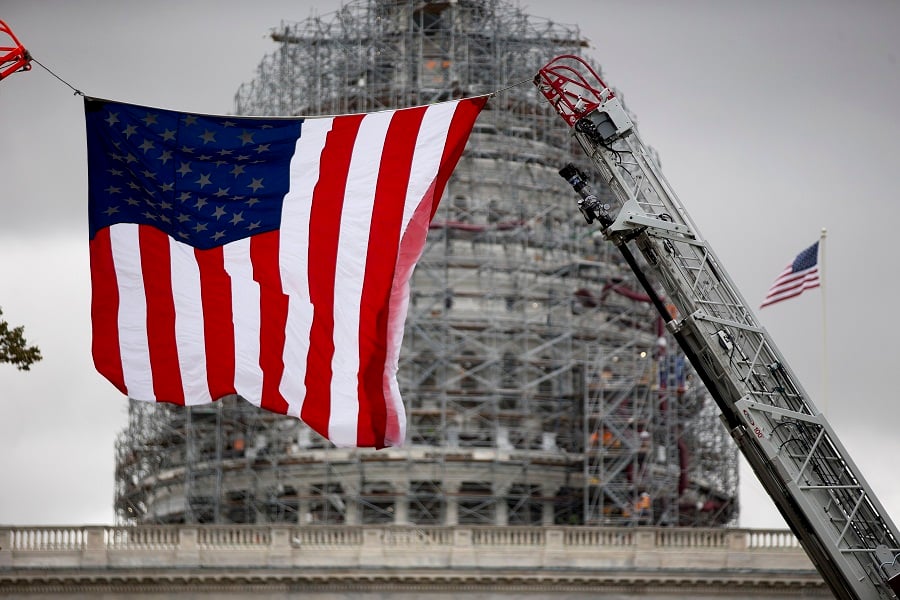A massive spending bill that will keep the government operating until next fall does not contain a provision to halt a Labor Department rule that would raise investment-advice standards for retirement accounts.
Congressional negotiators completed on Tuesday night a $1.15-trillion omnibus appropriations bill that will be voted on by the House and Senate later this week.
In a victory for proponents of the DOL rule, legislators' policy riders that would have either prevented or delayed promulgation of the regulation
did not make it into the must-pass measure.
The Financial Planning Coalition praised lawmakers for “standing up for American investors” in a statement on Wednesday.
(More: Levitt: Don't let financial advisers off the hook)
RETIREMENT SECURITY
“Retirement investors need — more than ever — unconflicted advice that is in their best interests,” the FPC said. “By allowing the DOL to proceed with its rulemaking without further delay, members [of Congress] are taking an important step to strengthen retirement security for Americans.”
The rule still faces resistance in Congress. A bipartisan group of lawmakers said they will
soon introduce a bill to replace the rule with what they call a better approach to ensuring financial advisers act in the best interests of their clients.
But President Barack Obama, who calls the DOL rule an important part of his "middle-class economics" initiative, stands ready to veto legislation, even if it achieves enough support in the Senate to overcome a filibuster.
The best chance for any bill to get through Congress was to attach it to the omnibus spending package, which must be approved to keep the government open. It does not appear that there will be another must-pass bill before the rule is finalized, which will probably occur in the first quarter of next year.
STANDING UP
The DOL rule,
introduced in April, has generated a fierce lobbying battle.
The Obama administration argues that the measure, which would require brokers to put their clients' interests ahead of their own in 401(k) and individual retirement accounts, is needed to protect workers and retirees from high-fee products that erode their savings.
The financial industry says the rule would significantly increase liability risk and regulatory costs for brokers and would make giving and receiving advice much more expensive — forcing savers with modest assets out of the advice market.
The Financial Services Institute, which represents independent broker-dealers and financial advisers, is not giving up on congressional action to stop the DOL rule.
"The odds of passing an omnibus bill with a rider to protect retirement investors from the Department of Labor's fiduciary rule … were always slim," Dale Brown, FSI president and chief executive, said in a statement Wednesday morning. "But that rider is not Congress' only chance to act. This is why all advisers must get engaged in the legislative process and advocate for hard-working Americans trying to save for a dignified retirement.”
Proponents of the fiduciary rule see it another way.
“Financial firms have mounted one of the most aggressive lobbying campaigns in recent memory to defeat a rule that would require them to put their customers' interests first when providing retirement investment advice,” Barbara Roper, director of investor protection at the Consumer Federation of America, said in a statement. “We are enormously grateful that Congress chose to stand up to the special interests and stand with workers and retirees on this issue of immense importance to their retirement security.”
Generally, Republicans want to stop the rule, while dozens of Democrats have urged DOL to modify it. Earlier this month, a Republican and Democratic senator called on DOL to let Congress take the lead.
“Regardless of the nature of Congress's involvement and input, Congress has a clear role to play in making certain that any changes — whether regulatory or legislative — achieve the right policy outcome and ensure consistency across the retirement landscape,” Sens. Rob Portman, R-Ohio, and Benjamin Cardin, D-Md., wrote in
a Dec. 4 letter to DOL Secretary Thomas Perez.
If the DOL rule is finalized, Congress will then have 60 days to review it and could decide to introduce a resolution of disapproval.







